Cavities/Tooth Decay - Diagnosis and Treatment
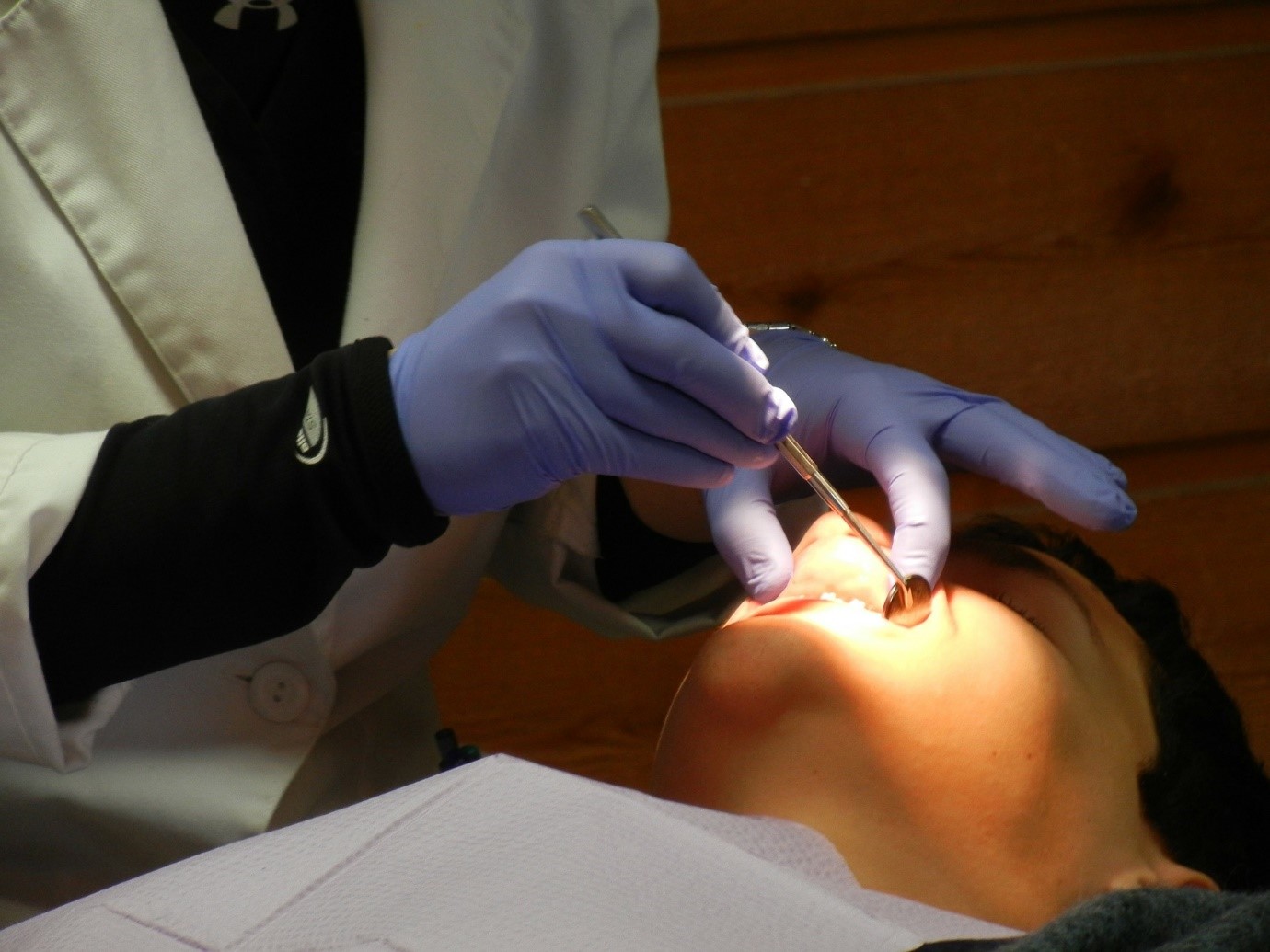
Cavities and tooth decay are not only among the most common dental problems in the world but also rank among the most common health problems as well. Children and teenagers are more prone to these problems, but older adults too are not immune to it either. In fact, anyone who has teeth can get decay or cavity and if not treated in a timely manner, it can lead to tooth loss. Cavities are basically damaged areas in the teeth that lead to formation of holes or caries over time. It can cause severe toothache and infection, so follow regular dental care to keep them away.
Consult your dentist to get information about teeth cleaning cost and opt for the right treatment to save your teeth from decay and cavities.
Causes- Poor oral care, not cleaning teeth properly is one of major causes of cavities.
- Bacteria in the mouth due to excessive snacking, eating or drinking too much of sugary items can cause cavities.
- No visible symptoms maybe there when the cavity is beginning but when the problem gets bigger, you will start to notice brownish/blackish spots.
- Tooth sensitivity, toothache and pain without any apparent cause can be experienced.
- Visible holes or pits in the teeth noticeable, and in the later stages you may experience varying levels of pain – from mild to sharp while eating foodstuffs.
- Tooth sensitivity when eating or drinking something hot or cold, and pain while biting down on something.
- The dentist will examine the teeth to see if there are any cavities. History of pain, duration, sensitivity to hot and cold foodstuffs will help in assessing.
- The soft areas will be checked using some dental instruments to check the presence of cavities.
- The dentist will take x-rays to check the depth and extent of the decay.
Treatment
Seeking treatment for cavities or tooth decay at the earliest is key to preventing their progression. The treatment however will depend on the location and severity of the problem.
In general, there are different treatment options for decay depending upon the extent of spread, depth of decay and nerve involvement. These include:
#1. Fluoride Treatment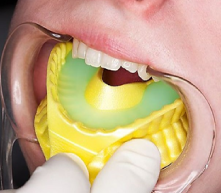
Fluoride treatment is done as a preventive measure and in situations where decalcification has just started. In fact, it may also help reverse the cavities in their very early stages. The treatment involves the use of fluoride either in the form of liquid, foam, gel or varnish to do the needful. So, don’t ignore early signs of cavities and head towards a preventive approach.
#2. Fillings
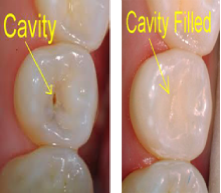
If your cavities and tooth decay have crossed the early stages, you may require fillings or restorations as fluoride treatment will not serve the purpose. This treatment method may not reverse the enamel and dentine loss but ensures that the problem does not aggravate further. Here, the dentist will use filling material made of resins, resin modified cements or dental amalgam. Composites are tooth coloured filling materials used for aesthetic purposes to fill cavities.
#3. Root Canal Treatment
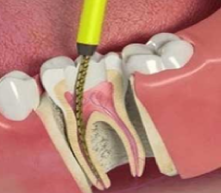
A root canal may be needed when the decay has entered the tooth pulp. This treatment will help in repairing and saving a tooth that has been extensively damaged or infected. So, you can avoid the need of extraction and preserve the tooth with root canal treatment. The infected pulp and the nerve inside are removed, any infection is cleared away and an inert filling material is placed to replace the pulp.
#4. Crowns
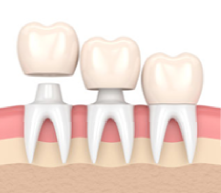
A crown is needed when the cavity or decay has become extensive leading to weakening of the tooth structure. A custom fitted crown is made to replace the missing tooth structure and give it support. To ensure a perfect fit of the crown, the dentist will take impressions of the teeth after crown preparation, match the shade and send to the lab for fabrication. Crowns can either be made of ceramic, porcelain or porcelain-metal fused.
#5. Tooth Extractions
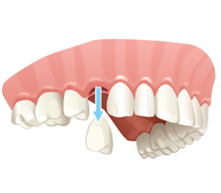
A tooth extraction becomes the last option in cases where the decay is so severe that any restoration is not possible. Do not get worried as there are good treatment options for replacing the missing tooth/teeth.
Testimonials

Dr. Gupta was very good. The professional teeth cleaning has fulfilled all my expectations.....
I came to Dr. Shivani Gupta with a great deal of pain and worry. But she took great care of me and provided top class service.....




